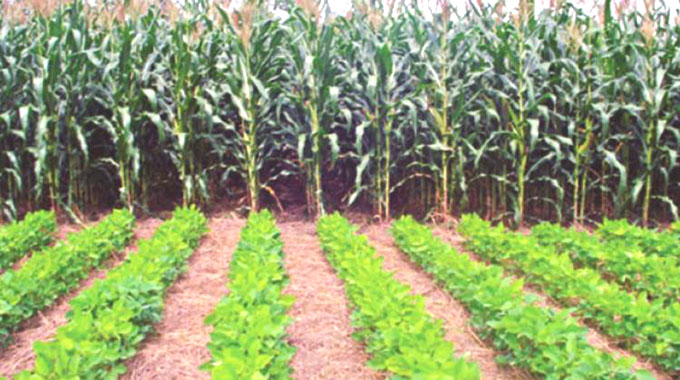
Ruth Butaumocho
African Agenda
The alarming resurgence in Covid-19 cases in Zimbabwe and neighbouring countries should jolt people out of the false sense of security that Africa and its people will be safe because of their skin colour and living habits.
Barely days into the new year, the world is faced with a catastrophe, a possible devastating economic crisis, which could worsen unless individual economies come up with their own plausible solutions.
The rate at which new cases are coming out on a daily basis in Zimbabwe calls for urgency on how the country is going to insulate its self from riveting infections while keeping an eye on productivity and production for the sustenance of the nation for months to come.
On Tuesday alone, 1 365 new cases and 34 deaths were reported throughout the country as the virus spreads in an unprecedented manner.
Zimbabwe has since reverted to Level Four lockdown to curb infections that are threatening to reverse the success recorded in the country’s response to the pandemic to date.
Except for mining, commercial activities, defined essential service providers and agriculture, other economic activities remain suspended for 30 days.
With no clear indication on how long it would be before a lasting solution is found, countries have begun to look inward for solutions to sustain their productivity levels and ensure food security as the world battles to contain the virus.
For Zimbabwe, resuscitation and sustenance of agriculture would be key in ensuring food security and propping up productivity because of the downstream effect that agriculture has.
Historically, agriculture is and has always been an anchor sector for the country’s economy and its out-turn often impacts positively on the manufacturing sector.
Even the recently launched National Development Strategy 1 acknowledges the importance of agriculture in economic recovery and the Government has since promised to improve food security in the country from 45 percent to 100 percent by 2025 through a coterie of measures.
Already indications are that the 2020-21 agricultural season is poised for an average growth after the Government injected millions into the sector to fund various farming activities, including the Pfumvudza concept, under which close to 1,8 million households are expected to implement the programme.
With normal to above rainfall expected, prospects of a good farming season are already being envisaged and that alone will reduce the country’s food import bill, that has been increasing over the past few years.
Looking into the future, the country should begin to invest in agricultural infrastructure such as dams and irrigation, which is proving to be a viable alternative mitigation against erratic rains.
Investment should also be channelled into transport and energy, which are key enablers in unlocking value within the agricultural industry and the rest of the economy.
Having realised the strategic importance of agriculture in contributing towards the country’s growth domestic product (GDP), sooner or later, the Government will need to review the land audit processes and boot out unproductive farmers.
The fact that Zimbabwe is currently battling a growing food import bill does not mean that the country is not able to grow its own, given the existing legislative policies that support agriculture and channel resources towards the sector.
What is instead stalling growth in the agricultural sector is the advent of agro-prenuers, who are sitting on vast tracts of land, receiving inputs running into millions of dollars from the Government, only to resale them on the black market for a song.
Several farmers have been arrested and arraigned before the courts for stealing Pfumvudza inputs, a move that is albatross to the growth of agriculture in Zimbabwe.
That explains why only a handful of farmers bend their backs to produce half of the required tonnage to meet the national supplies, while some are just keeping the land for speculative purposes.
Annually, Zimbabwe requires an average of 400 000 tonnes of wheat, yet the current national output is about half of that.
The target can be achieved once all the farmers given land under the land reform programme fully utilise what they are currently sitting on.
It is indeed folly and downright mischievous to continue parroting the same empty and racist sentiments that blacks are not capable of utilising land they acquired from the white former farmers.
Naturally, such racists and retrogressive comments are being perpetuated by lazy, idle farmers and their erstwhile friends, gleefully hoping that the country’s agricultural sector will go into a comatose.
The country has gone beyond that stage as attested by the last farming season, where there was marked improvement despite the erratic rains the country received.
The United Nations Food and Agriculture Organization (FAO) in a June 25, 2019 country brief on Zimbabwe weighed in on the growth, saying the country’s maize production came to 908 000 tonnes, an increase of 16,9 percent from the previous farming season.
Despite the effects of Covid-19, the nation remains optimistic that 2020-21 season could prove to be a game-changer, given the Government’s support towards production of major crops.
Already, the country boasts of several hard-working farmers who are utilising their land well and are adequately producing towards the national reserves. They, however, need support from other farmers to ensure an increase in production.
While the Government can put policies and strategies in place, these can only come to fruition through a buy-in from the farmers who are currently sitting on vast tracts of under-utilised land.
As Covid-19 continues to ravage communities, agriculture is one area that needs support, and an area of opportunity going forward to increase inter-regional integration and insulate the nation against the effects of the coronavirus.
